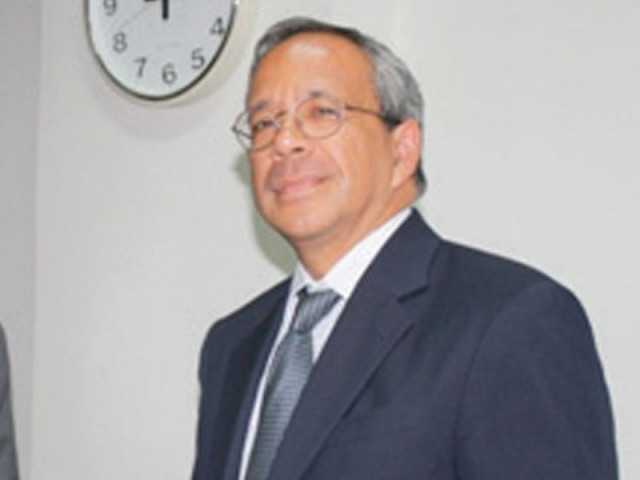Germany and France teach Pakistan how to work through issues with India
The French Consul General explains how the relationship can improve in three easy steps.

Perhaps India and Pakistan could learn a lesson from France and Germany, after all they were once bitter rivals too.
In the Second World War, they were on opposing sides - Germany led the Axis while France was part of the Allies.
“In Germany alone, eight million out of the 65 million died in the war,” said Germany’s Consul General Dr Tilo Klinner. “It was this realisation that made the German people never want history to repeat itself. It proved to be the driving engine for reconciliation between two countries.”
Klinner had been invited by the University of Karachi’s Area Study Centre of Europe (ASCE) to speak on ‘The Vision for a Common European Home’ with his French counterpart, Christian Ramage.
In his presentation, Klinner recapped the long-term conflicts between the two countries and the numerous wars in their history. He compared Alsace-Lorraine, two industrial territories which caused a great deal of bloodshed, to Kashmir – the bone of contention between India and Pakistan.
Ramage’s explained how the Franco-German couple, as he referred to the countries in his presentation, overcame their conflicts. “Our founding fathers had been a part of the world wars,” he said. “They were conservative and even nationalistic but they accepted the fact that reconciliation was the key to long-lasting peace in the region.”
Ramage divided the process into three steps – the first step was the formation of European Coal and Steel Community. Its main aim was to regulate the steel and coal resources so that none of the countries in Europe, especially Germany, could develop arms secretly. The second milestone was the Treaties of Rome which symbolised the Franco-German reconciliation. The third milestone was the signing of Elysee Treaty in 1963 which was based on reconciliation, building friendship and working for the unification of Europe.
Both countries had agreed to involve the youth in the peacemaking process. Every year around 200,000 young men and women would cross borders to learn about the country and its people. Klinner added that he had also participated in the youth programme. “This is how I first got to see Paris and began learning French,” he said. “I was only 18-years-old.”
The countries encouraged what Ramage called “twinnings”, pairing up of cities, towns, districts and institutions. Teaching German and French was encouraged as second languages with English. “I belong to an older generation of diplomats and it embarrasses me that I cannot speak German,” lamented Ramage. “Every German diplomat I meet speaks French as fluently as me.” He added that it was compulsory for the diplomats of both the countries to learn their neighbouring country’s language when they assume office.
The cooperation, however, does not stop here. Ramage went on to tell the audience that whenever French diplomats took charge, their first visit was to their German counterparts, and it was the same in Germany. The relations between the two countries were quite ‘intense’ as he put it. They also have a common channel, called Arte, which runs cultural programmes. But the most remarkable feat which the countries have achieved is writing a common history book. “History is always tilted to one side, most of the time towards the victor,” said Klinner. “But once you have a common history all the underlying issues disappear. Imagine what would happen if India and Pakistan agreed upon their history?”
Towards the end of the session, the chairman of ASCE, Dr Moonis Ahmar was optimistic about the future of South Asia. “Till a few years ago Indian and Pakistani leaders could not even think about shaking hands,” he said. “But now they do.”
While talking about Klinner comment about common history, Dr Ahmar said that the issue was the past. “We must understand the cost of the conflict,” he said. “Europe paid the price by 50 million deaths in the Second World War.”
Published in The Express Tribune, May 10th, 2012.



















COMMENTS
Comments are moderated and generally will be posted if they are on-topic and not abusive.
For more information, please see our Comments FAQ